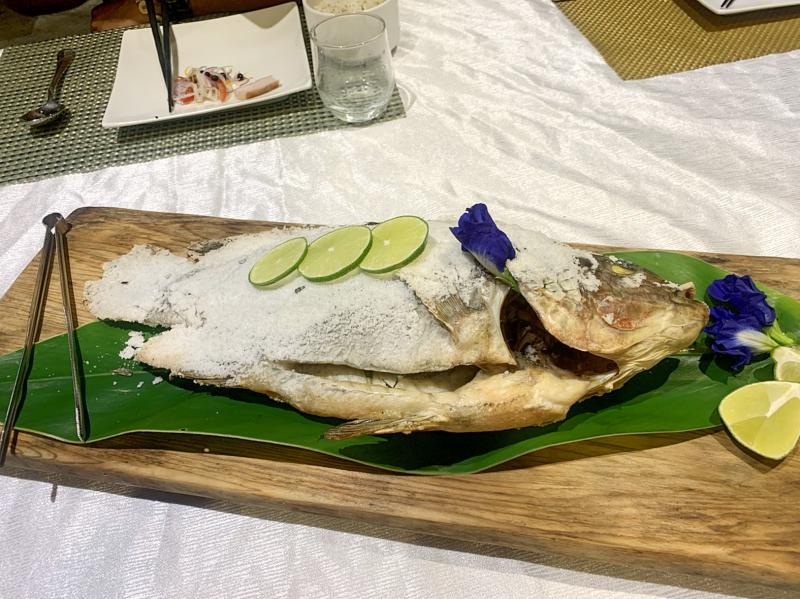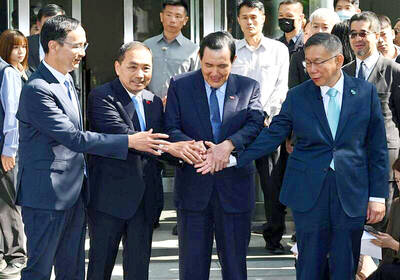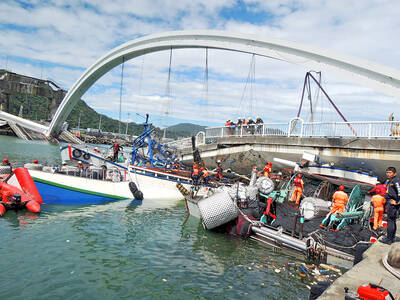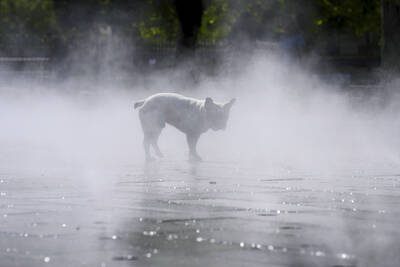Over the past few years, Taiwan’s Aboriginal communities have begun to take enormous pride in their cuisine, which is based on their unique culinary traditions, sourced from the mountains, plains and sea.
If you are in Chihshang Township (池上), Taitung County, be sure to visit Bayang (芭洋Amis美饌), a menu-less restaurant that serves up sublime seasonal Amis cuisine. The restaurant’s owner, Kao Hsiao-yuan (高筱媛), is a sixth generation descendant of the Kakupa royal family. Kao returned to her ancestral home, which is located next to the restaurant, to care for her sick mother and research Amis culinary traditions. Bayang is the fruit of years of study, combining traditions of her mother and community, but finished with a flair of the modern.
The restaurant space, nestled off a lane of dense foliage, features ultra-high ceilings, handmade bamboo fixtures and bar, oversized wooden tables and chairs, and, like the food served, combines tradition with innovation.

Photo courtesy of Co-create Planning & Design Consultancy
Our meal began with a robust traditional Amis seasonal soup with an assortment of wild mountain vegetables, followed by a mugao mustard salad with crushed peanut powder. Mugao is a fiddlehead fern that is important to the traditional Amis diet, and its delicate flavor wasn’t overpowered by the mustard greens. It was a nice accompaniment to the rich soup.
The soup and salad appetizer was followed by grilled pork belly served with a side of warrior beans and onion salad with plum vinaigrette. This showstopping combination had our table gobbling down the finger-sized morsels of succulent meat topped with the refreshing sweet and sour salad. Kao says the idea of the dish came from a story about the sourcing of ingredients when her ancestors migrated from Pingtung County’s Hengchun (恆春) to Chihshang 200 years ago.
Village-style grilled fish followed the pork. This Amis specialty is white fish grilled over an open flame after being marinated with a mixture of salt, garlic and tana, a traditional Amis herb. Most of our party agreed that the marinated mixture topped with a squeeze of lime and moist flesh was the highlight of an already outstanding meal.
Our Amis dining experience ended with cubes of seasonal fruit marinated in sweet fermented rice followed by sweet mini rice cakes. The fermented rice enhanced the flavor of the fruit, while the homemade rice cakes were among the best I’ve ever tasted.
Having never tried traditional Amis cuisine, I left thinking that I must expand my knowledge of these vibrant Aboriginal foodways so I can better appreciate how chefs like Kao have modernized them into remarkable creations.

Has the Taiwan People’s Party (TPP) changed under the leadership of Huang Kuo-chang (黃國昌)? In tone and messaging, it obviously has, but this is largely driven by events over the past year. How much is surface noise, and how much is substance? How differently party founder Ko Wen-je (柯文哲) would have handled these events is impossible to determine because the biggest event was Ko’s own arrest on multiple corruption charges and being jailed incommunicado. To understand the similarities and differences that may be evolving in the Huang era, we must first understand Ko’s TPP. ELECTORAL STRATEGY The party’s strategy under Ko was

Before the recall election drowned out other news, CNN last month became the latest in a long line of media organs to report on abuses of migrant workers in Taiwan’s fishing fleet. After a brief flare of interest, the news media moved on. The migrant worker issues, however, did not. CNN’s stinging title, “Taiwan is held up as a bastion of liberal values. But migrant workers report abuse, injury and death in its fishing industry,” was widely quoted, including by the Fisheries Agency in its response. It obviously hurt. The Fisheries Agency was not slow to convey a classic government

It’s Aug. 8, Father’s Day in Taiwan. I asked a Chinese chatbot a simple question: “How is Father’s Day celebrated in Taiwan and China?” The answer was as ideological as it was unexpected. The AI said Taiwan is “a region” (地區) and “a province of China” (中國的省份). It then adopted the collective pronoun “we” to praise the holiday in the voice of the “Chinese government,” saying Father’s Day aligns with “core socialist values” of the “Chinese nation.” The chatbot was DeepSeek, the fastest growing app ever to reach 100 million users (in seven days!) and one of the world’s most advanced and

It turns out many Americans aren’t great at identifying which personal decisions contribute most to climate change. A study recently published by the National Academy of Sciences found that when asked to rank actions, such as swapping a car that uses gasoline for an electric one, carpooling or reducing food waste, participants weren’t very accurate when assessing how much those actions contributed to climate change, which is caused mostly by the release of greenhouse gases that happen when fuels like gasoline, oil and coal are burned. “People over-assign impact to actually pretty low-impact actions such as recycling, and underestimate the actual carbon